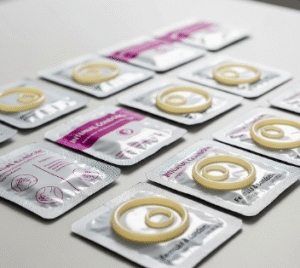Overview
Sticky eye, medically known as conjunctivitis, is a common eye condition that can affect people of all ages. It involves inflammation or infection of the conjunctiva — the transparent membrane that lines the eyelid and covers the white part of the eyeball. In Korea, conjunctivitis is commonly reported during seasonal changes and is typically caused by viral, bacterial, or allergic reactions.
What is Sticky Eye (Conjunctivitis)?
Sticky eye occurs when the conjunctiva becomes inflamed, leading to redness, discharge, and a gritty sensation in the eye. The discharge may cause the eyelids to stick together, especially after sleep — hence the name “sticky eye.” Conjunctivitis can be contagious depending on its cause and may spread easily, particularly among schoolchildren or in crowded places.
Symptoms
- Red or pink appearance in one or both eyes
- Watery or thick yellow/green discharge
- Crusting around the eyelids, especially after sleep
- Itchy or burning eyes
- Sensitivity to light
- Gritty feeling in the eyes
- Swollen eyelids
Causes
- Viral infections (most common): Often associated with colds or upper respiratory infections
- Bacterial infections: Typically produce thicker discharge
- Allergies: Caused by pollen, dust mites, or pet dander
- Irritants: Smoke, pool chlorine, or foreign objects in the eye
- Newborn conjunctivitis: May occur due to blocked tear ducts or exposure during delivery
Risk Factors
- Poor hand hygiene
- Use of contaminated eye makeup or contact lenses
- Exposure to allergens or irritants
- Close contact with infected individuals
- Use of communal towels or pillows
- Attending school or daycare (for children)
Complications
- Corneal involvement if untreated (especially with bacterial conjunctivitis)
- Vision impairment (rare)
- Chronic conjunctivitis in allergic individuals
- Risk of spreading infection in school or workplace
- Discomfort and social inconvenience
Prevention
- Wash hands frequently with soap and water
- Avoid touching or rubbing eyes
- Do not share towels, eye drops, or cosmetics
- Replace contact lenses as advised and clean them properly
- Avoid swimming in unclean pools
- Keep children at home until symptoms improve (if contagious)
- Use protective eyewear in dusty or allergen-prone environments
Treatment Options in Korea
Korea offers excellent eye care services, with easy access to ophthalmologists and clinics. Treatment depends on the underlying cause:
Viral Conjunctivitis:
- Usually resolves on its own within 1–2 weeks
- Cool compresses and artificial tears help soothe irritation
- Antiviral medication may be needed in severe or herpes-related cases
Bacterial Conjunctivitis:
- Treated with prescription antibiotic eye drops or ointments
- Symptoms usually improve within a few days of treatment
Allergic Conjunctivitis:
- Antihistamine eye drops
- Oral allergy medications
- Avoidance of known allergens
- Cool compresses for relief













